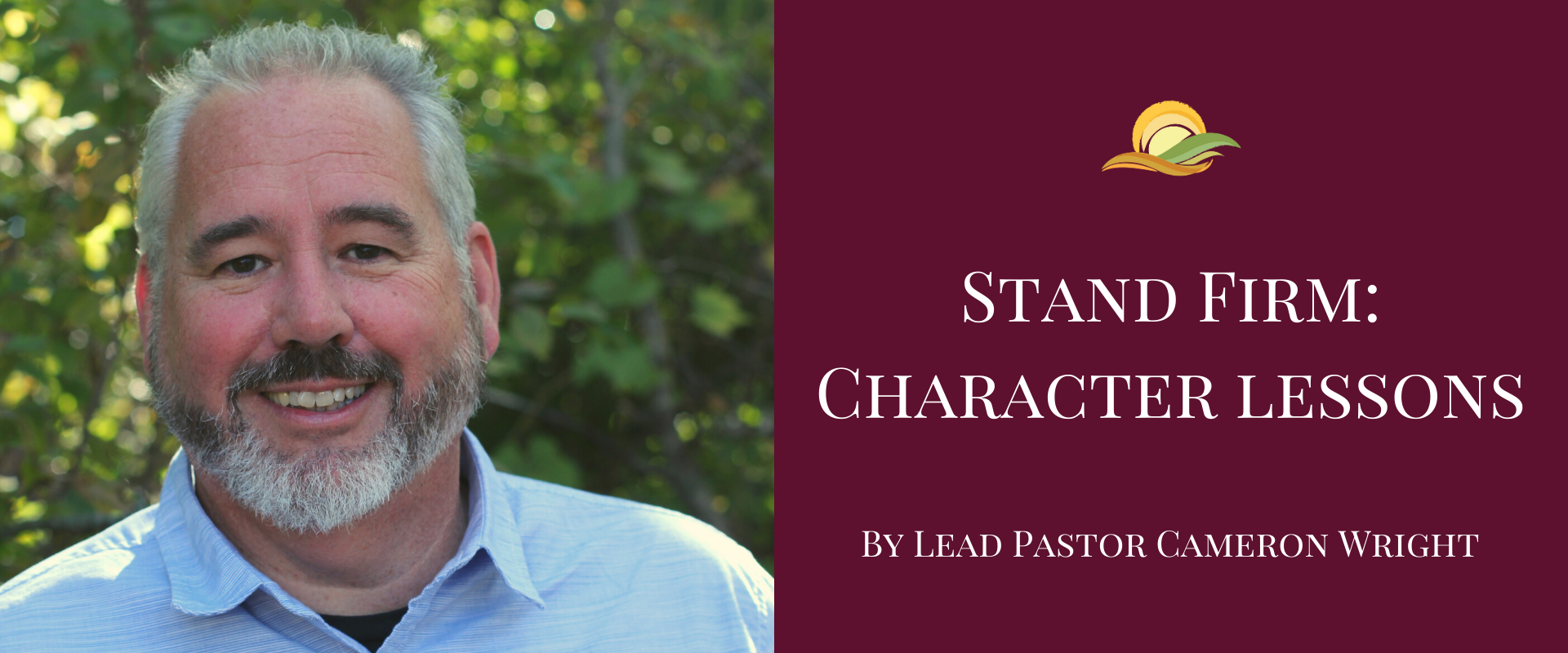As a church, we are in a teaching series called Stand Firm. We are looking at Biblical figures who persevered in the way of God despite difficult circumstances and significant opposition. This decision to stand firm is for each individual Christ-follower and for communities of believers. Paul, in his second letter to the Corinthians, tells about the generosity of the Macedonian churches. This group of churches were “in the midst of a very severe trial” (8:2). And yet, their great poverty did not keep them from overflowing in generosity through financially giving to the apostles and their ministry. According to Paul, these poor churches gave “beyond their means” (8:3).
The Macedonians actually begged the apostles “for the favor of taking part in the relief of the saints” (8:4). Let’s take a moment to look at three key words found in this verse. First, the word favor is the Greek word charis. Hopefully, this word is familiar to you after we spent six months last year talking about it. Charis is often translated as “grace” or “gift”. For the Macedonians, generosity was not a chore, but a way that they could participate in the free, unmerited favor they had received from God. Second, the Macedonians wanted to “take part”. Again, we find a relatively familiar Greek word: koinonia. This very same word was used in the first letter to the Corinthians when Paul said, “God is faithful, by whom you were called into the fellowship (koinonia) of his Son, Jesus Christ our Lord. Koinonia means “participation” or “fellowship”. The Macedonians wanted to give generously, to participate in the life of the saints because they had been invited into participation with Jesus. Being united with Jesus means being united with believers all over the world. And finally, the Macedonians wanted to bring relief. This is our Christian vocation: to move towards and bring relief to the hurting and needy, because that is what Jesus did.
Although Jesus was fully God, he did not consider equality with God something to be used to his own advantage (Phil. 2:6). He stepped down from his place in glory at the right hand of God to be born a man, to suffer and die on a cross so that people far from God could be brought close. Jesus is grace revealed to humanity stuck in sin. Jesus came to bring each one of us into fellowship with God. Jesus brings relief to people struggling in the quagmire of sin.
As we look to Jesus we receive his grace, we find fellowship with him, and we receive his merciful relief. Despite the challenges around us and our own selfish disposition, the faithful response is to do likewise—to participate with Jesus in bringing the kingdom of God to earth as it is in heaven.























